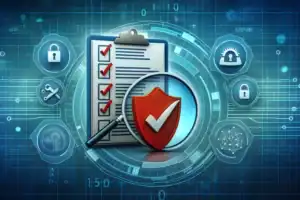Address Verification Services
Address verification is a process used to confirm the accuracy and validity of an individual’s residential or business address.
It is commonly conducted for various purposes, including:
- Identity verification: Address verification helps confirm that the provided address matches the identity information provided by an individual, such as during account creation or on official documents.
- Fraud prevention: Verifying addresses aids in preventing fraud by ensuring that individuals are providing legitimate and valid addresses, reducing the risk of fraudulent activities or misrepresentation.
- Shipping and delivery accuracy: Address verification is crucial for businesses involved in shipping and logistics to ensure accurate delivery of goods and services, avoiding potential delays, returns, or incorrect shipments.
- Compliance requirements: Certain industries, such as finance, insurance, and telecommunications, have regulatory obligations to verify customer addresses for compliance purposes, such as anti-money laundering (AML) or know-your-customer (KYC) requirements.
- Address validation for service provision: Service-based businesses, such as utility providers or telecommunications companies, verify addresses to confirm eligibility for their services, determine service coverage, and accurately bill customers.
The process of address verification typically involves cross-referencing the provided address against reliable data sources, such as postal databases, public records, or credit bureaus. It may also involve contacting the individual or sending physical mail to the provided address for confirmation.
Address verification methods:
- Database matching: The provided address is compared against reliable databases, such as postal service records or commercial address databases, to validate its accuracy and existence.
- Address validation APIs: Businesses can integrate address validation APIs into their systems, which instantly verify addresses by accessing real-time data sources and performing address standardization, validation, and correction.
- Document verification: Official documents, such as utility bills or government-issued identification, may be requested to confirm the individual’s address. These documents can provide additional evidence of the address’s validity.
- On-site visits: In certain cases, particularly for businesses or high-risk situations, on-site visits may be conducted to physically verify the address by confirming its existence and matching it to the individual or organization associated with it.
Address verification challenges:
- Data accuracy: Address databases may contain outdated or incorrect information, leading to potential mismatches or errors during verification.
- International addresses: Address verification becomes more complex when dealing with international addresses due to varying address formats, language barriers, and limited data availability.
- Data privacy: Address verification requires handling and processing personal information, so businesses must ensure compliance with data privacy regulations and protect sensitive customer data.
Benefits of address verification:
- Improved customer experience: Accurate address verification ensures prompt and reliable delivery of products, services, and correspondence, enhancing overall customer satisfaction.
- Fraud prevention: Verifying addresses helps mitigate the risk of identity theft, fraudulent activities, and misrepresentation by confirming the authenticity of the provided address.
- Operational efficiency: Valid addresses reduce costs associated with returned mail, failed deliveries, and re-routing, streamlining logistical operations and minimizing disruptions.
- Regulatory compliance: Address verification assists businesses in meeting regulatory requirements, particularly in industries with compliance obligations such as AML, KYC, or data protection regulations.
- Enhanced data quality: Validated addresses contribute to maintaining accurate and reliable customer databases, improving data integrity, and supporting effective data analysis and decision-making.
Address verification is a critical process for businesses across various industries, ensuring accurate customer information, mitigating fraud risks, and enabling seamless operations. By implementing robust address verification practices, organizations can strengthen their customer relationships, increase operational efficiency, and safeguard against potential risks associated with incorrect or fraudulent addresses.
Address verification best practices:
- Use reliable data sources: Utilize trusted and up-to-date address databases or APIs to ensure accurate verification results.
- Implement address standardization: Standardize addresses by correcting formatting inconsistencies, abbreviations, or misspellings to enhance matching accuracy.
- Cross-verify multiple data points: Validate addresses by cross-referencing different sources of data, such as utility bills or credit reports, to establish address authenticity.
- Regularly update and maintain address databases: Keep address databases regularly updated to ensure accuracy and improve the efficiency of future verifications.
Require this Verification Service?
Frequently Asked Question (FAQs)
1. Why is address verification important for businesses?
- 1. Ensures accurate deliveries and improves customer satisfaction.
- Helps prevent fraud and unauthorized activities.
- Maintains data quality and integrity in customer databases.
- Enhances operational efficiency by reducing errors and costs.
- Supports compliance with industry regulations and requirements.
- Mitigates risks associated with high-risk or challenging locations.
- Enhances the overall customer experience and builds trust.
- Reduces costs associated with failed deliveries and returns.
2. What data sources are typically used for address verification?
- Postal Service Databases
- Commercial Address Databases
- Geographic Information Systems (GIS)
- Public Records
- Credit Bureau Data
- Internet Search Engines
- Address Verification APIs
- Government Databases
3. How can businesses ensure data privacy and security during address verification?
- Data Encryption: Implement encryption techniques to protect sensitive address data during storage and transmission.
- Access Controls: Restrict access to address data only to authorized personnel who need it for verification purposes.
- Secure Storage: Store address data in secure databases or cloud storage systems with proper security measures, such as firewalls and intrusion detection systems.
- Data Minimization: Collect and retain only the necessary address information required for verification, minimizing the amount of sensitive data stored.
- Compliance with Regulations: Adhere to applicable data protection and privacy regulations, such as GDPR or CCPA, when handling address data.
- Secure Communication: Utilize secure communication protocols, such as HTTPS, when transmitting address data over networks or APIs.
4. Is address verification mandatory for all businesses?
The requirement for address verification may vary depending on the industry, jurisdiction, and specific business operations. However, certain industries and regulatory frameworks may mandate address verification as part of their compliance obligations.
Industries such as finance, insurance, telecommunications, and healthcare often have specific regulations and requirements related to customer identification, anti-money laundering (AML), know-your-customer (KYC) rules, or data protection laws. These regulations may necessitate address verification as a means to verify the identity and address of customers.
It’s essential for businesses to familiarize themselves with the legal and regulatory landscape relevant to their industry and location to determine if address verification is mandatory or recommended.
5. What methods are used for address verification?
- Database Matching
- Address Validation APIs
- Document Verification
- On-Site Visits
- Geocoding









